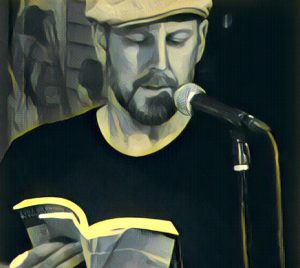
A Roxana Robinson novel will never waste your time with characters who are fashionably bored.
Robinson’s characters are always in trouble — are nearly or literally in extremis. Her early novel This Is My Daughter is a piercing study of a second marriage besieged by child problems. Cost is a bitter tale of a young heroin addict and his family. The new Sparta is about a Marine returning to his suburban New York home after a bad tour of duty in Iraq. In all three novels, we meet people who are pushed beyond the limit, who are facing the worst moments of their lives. Sometimes they survive, sometimes they don’t.
Conrad is a bright, arrogant college kid from a liberal Westchester, New York family who breaks free from his household’s enveloping hold by joining the Marines. It’s an impressive gesture, but he has the bad luck to join in time to invade Iraq in 2003. Now back home in his family’s hearth, he is a destroyed person, seeing and hearing threats everywhere, unwilling and unable to return to “at ease”.
He takes grad school courses and can’t concentrate. He goes to a restaurant and can’t stop waiting for the plate glass window by his seat to explode. Through the course of Sparta, we are led step by step into this once-promising young man’s condition, and as the story reaches a pinnacle of bleakness we are made to understand it fully.
You didn’t need to be or love a heroin addict to appreciate Robinson’s Cost, and you don’t need to be or love a veteran of the Iraq War to appreciate Sparta. It’s a novel about post-traumatic stress disorder, but it’s really about the broad post-traumatic stress disorder known as American Capitalism. It’s also about the alienation that lives among us and within us, that sometimes cuts more deeply than we want it to.
Here’s Conrad in what should be a sweet family moment with his younger sister, who adores him. But Conrad’s brain betrays him in these attempted sweet family moments. He keeps thinking ugly thoughts.
As a kid, he’d once watched a polar bear at the Central Park Zoo. The bear was close, only fifty feet away. He was walking across a huge outcropping of stone. Conrad was mesmerized by him, his huge padded feet, his narrow, snaky muscle, his creamy pelt, his massive, dangerous size. The bear stopped and turned, looking straight at Conrad. The small rounded ears were pricked, the black eyes focused. For a long, locked moment they looked at each other. The deep gaze seemed to link them. The watching boy returned the look. He felt an awed kind of kinship, a primal recognition.
But he’d misunderstood. Between them was a sheer granite drop and a deep chasm, a high metal fence, wire netting. They were in different worlds. The bear, seeing Conrad and pausing in his endless quest, had thought, simply, ‘Prey’. Conrad realized that later. There was no kinship. Now when Jenny told him he could tell her anything, there was that same kind of drop between them. A chasm.
Roxana Robinson is a deeply well-read traditional novelist who has been proudly inspired by her direct lineage from Henry Ward Beecher. Perhaps because I know her to be so well-read, her pages always seem to me to burst with literary allusions, though these allusions may or may not exist. When I interviewed Robinson about Cost, I was sure the whole thing was elaborately based on Shakespeare’s King Lear — until the author coolly told me that I was dreaming it all up (I’m still not convinced I didn’t have it right).
Like her other novels, Sparta wears some of its literary references in plain sight — mainly, Conrad’s fascination with the ancient militant Greek society that gives the book its title, and also Conrad’s love for Homer’s Iliad. Tellingly, his affection for both the US Marines and for his college girlfriend is grounded in Homeric revery. His romantic notions of noble war call to mind the life of Lord Byron (who also didn’t fare as well in his first real war as he expected).
This ex-Marine’s first name seems significant, and Roxana Robinson even admitted to Ed Champion in a recent Bat Segundo interview that Sparta‘s main character is named for the author of Lord Jim, Heart of Darkness and The Secret Sharer.
Perhaps the passage at the Central Park Zoo above is meant to subconsciously evoke Holden Caulfield (who liked to hang out in the same spot, and also had a loving gang of siblings he couldn’t quite relate to). More ominously, Sparta‘s lost military hero also resembles J. D. Salinger’s tragic Seymour Glass.
Read Sparta for literary immersion, or read it because it tells the very, very important story of what has been happening to soldiers in our country for the past ten years.
But read it. With Sparta, Roxana Robinson has proven once again that she is one of the most powerful and effective novelists of our age.





3 Responses
I will read this novel. It
I will read this novel. It sounds like a good book and I like all your literary references, right or wrong.
Insightful and interesting as
Insightful and interesting as ever. I hadn’t heard about this author. Thanks!
You sold me! I added this to
You sold me! I added this to my wishlist at powells.com